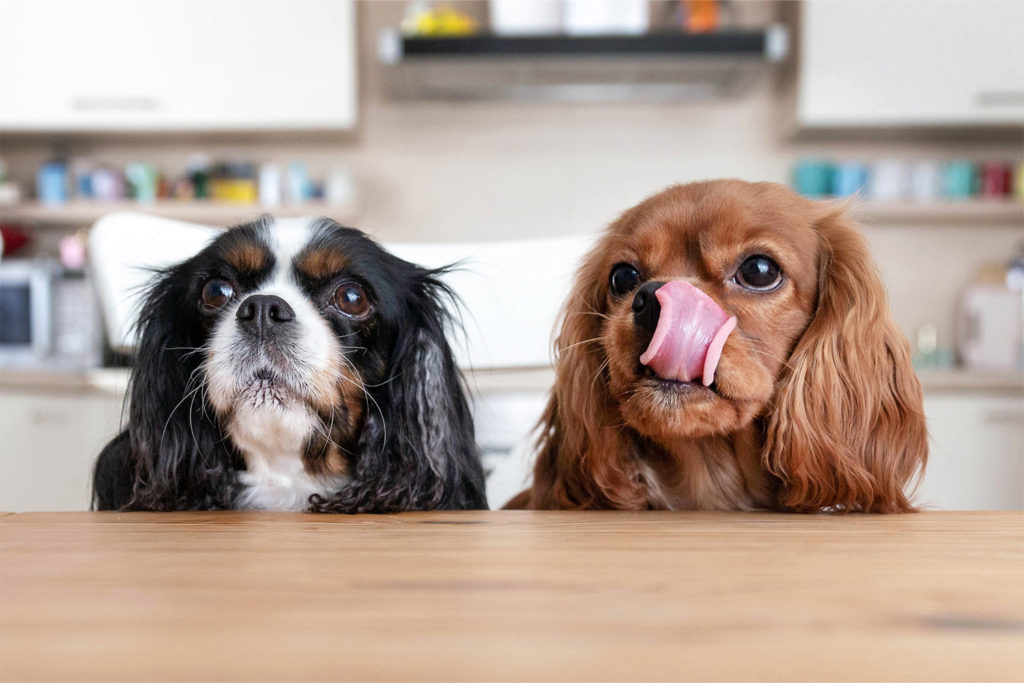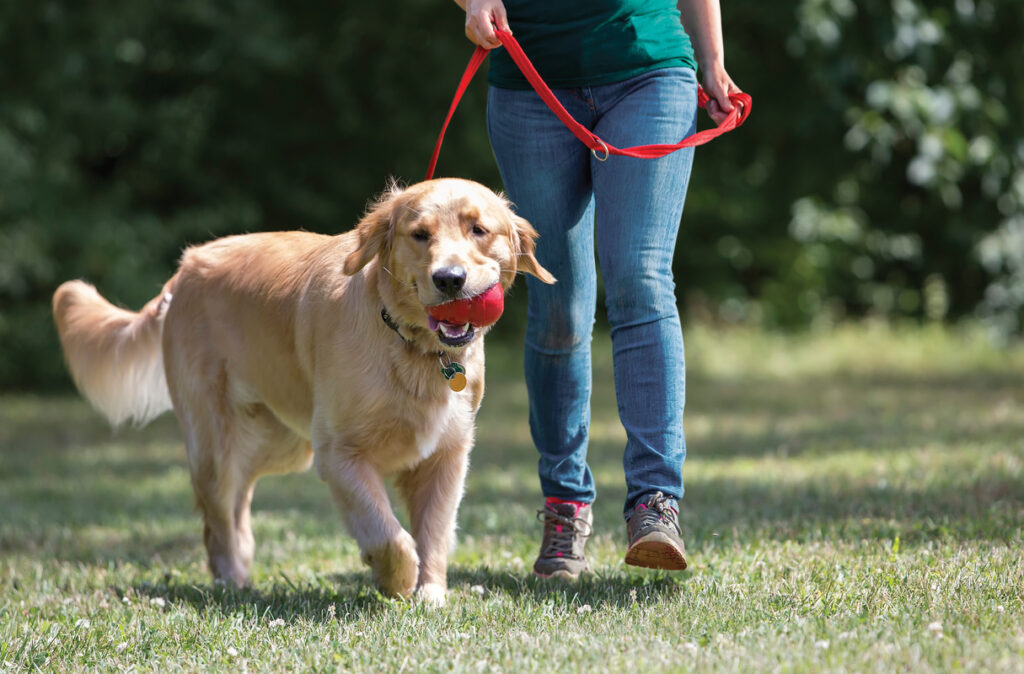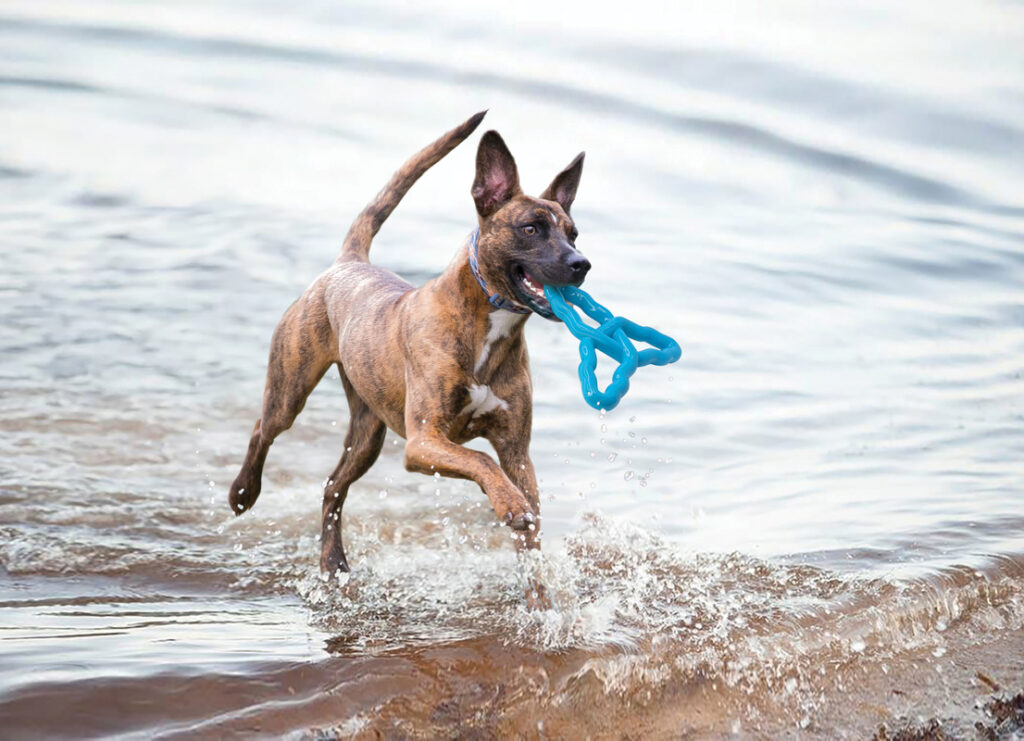Your new puppy is a source of joy, laughter, cute moments, and sometimes even anxiety. You are busy trying to keep them from chewing and peeing on everything on site. You’re also making sure they are not trying to eat things that are not good for them (like the smelly trash can they keep making their way towards).
Sometimes though, we may see that our puppy is not interested in the trash can or their food. While this can be a cause for worry, there are several reasons why your puppy may not have an appetite.
Picky Eaters
Just like children, puppies can be picky eaters. This can occur if you have offered your puppy a variety of foods and they have found something they particularly enjoy. They may “strike” until they receive the food they want. You can win this stakeout with a few tips to get your puppy excited for mealtime again.
Here are some key tactics to helping your puppy find their appetite to clean out their bowl:
Meal Enhancement
Like all humans, we would get tired of eating the same thing, prepared the same way, every day. To help your puppy enjoy their food a little more, you can enhance it by changing the way it is prepared. If you are feeding them moist food, you can warm it up a little. You could also mix some dry food into the wet to give the meal a little crunch and variety in texture.
If you are giving dry food, you could add a little canned food and mix it into the dry kibble. Some warm water, or broth, can also change the texture of the dry kibbles if they are given enough time to soak and soften.
There are also dog-specific food enhancements, like gravies, that can be poured into food as a flavor enhancement. Try adding at room temperature or warmed up to see which your puppy likes the best.
When adding anything to your puppy’s food, make sure it is done in gradual amounts to avoid any upset tummies. Your puppy may associate that food with not feeling well and may develop an aversion to that particular preparation. Experiment and see what is appealing to your dog’s tastes.
Bribery
While we won’t say that we condone bribery, when your puppy refuses to eat, you may just have to bribe them with a little human food. You’ll want to work with your vet on this, as there are many foods that are not healthy for dogs.
In general, these options are dog friendly:
Chopped chicken breast – plain with no seasoning
Chicken broth – make sure there is no onion or garlic, and it is low-sodium
Dry scrambled egg – no seasoning
Honey – all-natural, no xylitol
Green beans – unseasoned
When mixed into their regular food, pups may be bribed into finishing their bowl. Be careful with this, as your pet may become too dependent on these enhancers, especially if they aren’t the best food for a consistently healthy diet. You can wean these enhancers off little by little, so your dog isn’t surprised by not having the same delicious meal they had the day before.
Any Medications?
If you recently had a visit to the veterinarian’s office, and your puppy is on any medication, this may have affected their appetite.
Consult your veterinarian if you notice your puppy’s appetite has changed after taking any new medication or if they have been switched to a prescription diet. They may consider switching medications or adding an appetite stimulant to help them regain their appetite back.
If this medication is a temporary one, like an antibiotic, keep monitoring your puppy after they are finished with their medication to see if their appetite returns.
Environment
Puppies may not want to eat their dinner because their environment is not conducive to eating. If things are not normal for them, they may want to wait until they feel at ease again before eating.
Here are some environmental changes to consider if your puppy does not want to eat:
Temperature – is it too hot or too cold inside or outside? People don’t like big meals when it is hot, and your puppy may be too busy laying in front of the fan or air conditioning vent to eat. They could also be too cold, and their snuggly, warm bed is not a place they want to leave.
Excitement – are you having an event where there are a lot of people at your home? Your puppy may be too excited with all the commotion to eat. There are too many people to see and meet, as they may give belly scratches and say, “Who’s that good dog?”
Change in schedule – If your puppy is used to eating at a certain time, they may not be hungry if their meal is served earlier than usual. Any large change in schedule could throw your puppy off, and they may be more focused on trying to figure out what is going on.
Teething
Your pup’s little teeth are making an appearance, and you may realize this as shoes and other hard objects make a disappearance. Chewing helps your puppy relieve any pain they are experiencing as their little teeth grow.
If your puppy is eating dry food, the kibbles may just be too hard on their sore mouth, and they may refuse to eat. You can soften the kibbles by adding warm water or broth. You can also mix in some wet food to provide some soft texture.
Don’t forget to support your pup’s teething pains by offering chew toys. Some chew toys are specially made for teething puppies. Additionally, you can freeze them to provide some cool comfort on those tender gums.
Illness
When we feel unwell, we usually lose our appetite. The same can be said for dogs and puppies, and if you notice they are not eating, they may not be feeling well.
As you try tricks to try to get your puppy to eat, you may notice that they are symptomatic and are not acting like their usual selves. This is when it is time to worry, as your puppy may be experiencing an illness and need veterinary care.
Parvo
Parvo is a gastrointestinal illness that is easily spread from dog to dog. A sad fact, parvo is especially lethal in puppies if not treated by a veterinarian. Puppies lose their mother’s immunity as they grow older but haven’t matured enough to fight infections on their own, and parvo can be a major blow to their system. We definitely wish this were not the case, but since it does exist is, it vital to know what to look out for if your puppy refuses to eat.
Lethargy – your puppy seems to have no energy and does not appear interested in anything.
Vomiting
Abdominal Swelling – your puppy’s belly will be very swollen, and they may bark or yelp when touched.
Appetite Loss/Dehydration – your puppy refuses to eat or drink; this dehydration is exacerbated by vomiting and diarrhea.
If you do see these symptoms, you will need to seek emergency veterinarian care. This will involve giving fluids, antibiotics to prevent secondary infections and round-the-clock care. With treatment, many puppies do survive parvo and lead normal lives after this scary and sad experience.
Kennel Cough
Kennel cough is a respiratory disease. It is known by the honking noise that dogs make when they cough. Symptoms for kennel cough, of course, include coughing, but lethargy and a loss of appetite could single this condition as well.
Parasites
When your puppy has parasites, it can affect them through a change of appetite, lethargy, weight loss, vomiting, and a swollen abdomen, among other symptoms.
Parasites can be picked up from outside walks or given by other dogs. If you suspect your puppy is suffering from parasites, they will need to be dewormed and prescribed medication to prevent this from occurring again.
Time To Eat
Puppy days are among some of the favorite days of being a pet parent. Seeing your little fluffy friend discover the world around them is so much fun and such a big responsibility. You are caring for an animal for life, one that cannot speak for itself and tell you when things are out of sorts.
Our KONG Club AskVet Veterinarians are available 24 hours a day, seven days a week, for your puppy’s needs. Whether it’s reassurance that you may have a picky puppy on your hands or if you need a professional opinion on if your dog is ill and what next steps to take—we are here to provide kind and caring care for you and your puppy.
Sources:
Canine Parvovirus: Current Perspective | NCBI
Canine Parvovirus | American Veterinary Medical Association



